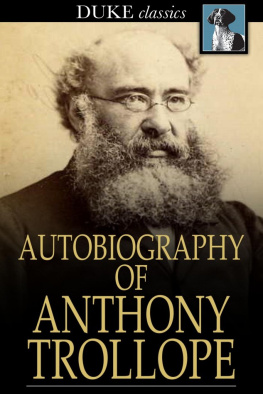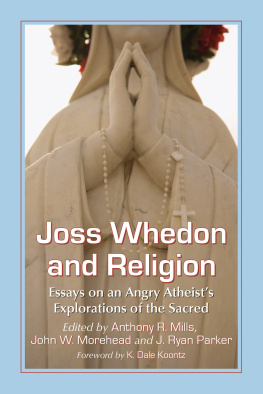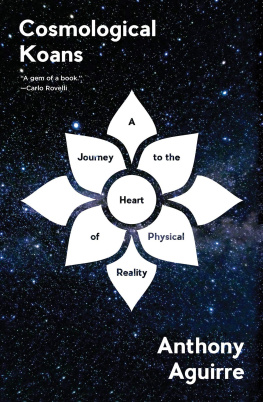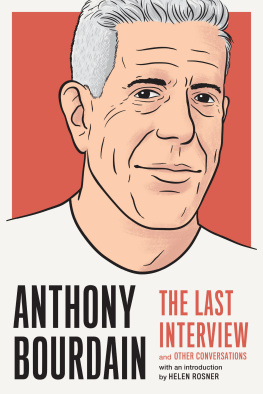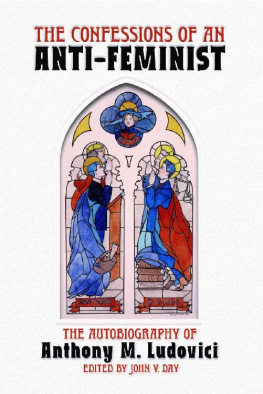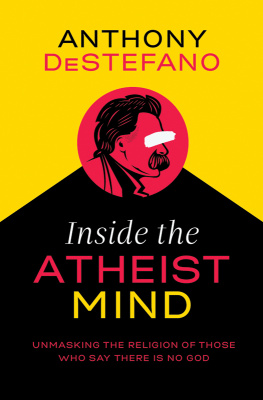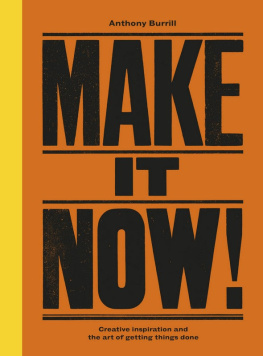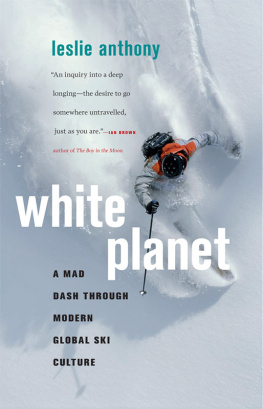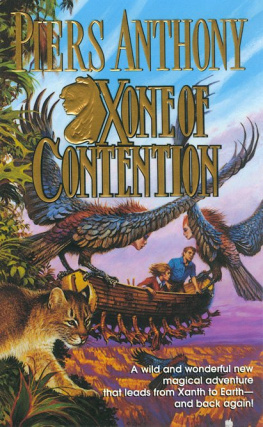Confessions of a Born-Again Pagan
Confessionsof a Born-Again Pagan

Anthony T. Kronman

Published with assistance from the Mary Cady Tew Memorial Fund.
Copyright 2016 by Anthony T. Kronman.
All rights reserved.
This book may not be reproduced, in whole or in part, including illustrations, in any form (beyond that copying permitted by Sections 107 and 108 of the U.S. Copyright Law and except by reviewers for the public press), without written permission from the publishers.
Yale University Press books may be purchased in quantity for educational, business, or promotional use. For information, please e-mail (U.K. office).
Set in Adobe Garamond type by Westchester Publishing Services.
Printed in the United States of America.
Library of Congress Control Number: 2015955523
ISBN 978-0-300-20853-5 (hardcover: alk. paper)
A catalogue record for this book is available from the British Library.
This paper meets the requirements of ANSI/NISO Z39.48-1992 (Permanence of Paper).
10 9 8 7 6 5 4 3 2 1
For Matt, Emma, Hope, and Alex
The earth is not an echo.
WALT WHITMAN, Leaves of Grass
Acknowledgments
This book is in important part about gratitude. Writing it, I have been acutely aware of my own for the gifts of many people, beginning with those who taught me years ago.
To three of my teachers I am especially grateful.
One is Dan OConnor. It was in Dans class on ancient philosophy at Williams College in 1965 that I first began to glimpse the beauty of Aristotles world and to sense the radical implications of the doctrine of creation that destroyed it. The questions he asked in that class, and his way of asking them, have been with me ever since.
At Williams and then later at Yale, I worked closely with Kenley Dove. Kenleys preoccupation with the meaning of the modern world became my own, and his utterly original interpretation of the history of Western philosophy has influenced my thinking in ways I could not summarize or disentangle. I have never left off being Kenleys student.
I must also say a word of thanks to Karsten Harries. I met Karsten when I came to Yale as a graduate student in 1968. The freshness and depth of his reading of the old books; the clarity with which he asked the most important questions; and his inspiring humanity have been for me, for nearly half a century, an example of what philosophy should be.
For most of this time, I have been on the faculty of the Yale Law School. There is no more encouraging environment on earth. I could not have written this book anywhere else.
My closest philosophical companion at the Law School is Paul Kahn. Paul generally disagrees with what I say. But I wouldnt want it otherwise. Every conversation with him is the start of an adventure.
I must also record my gratitude to my colleagues Bruce Ackerman and Owen Fiss. Their wisdom and encouragement have sustained me since I joined the faculty of the Law School almost forty years ago. More recently, I have benefitted from the friendship and support of three of my younger colleagues, David Grewal, Jed Rubenfeld and Daniel Markovits.
Beyond these, there are many others to whom I am grateful for their guidance and help. They include Jonathan Lear, who has taught me so much, about Aristotle and Freud in particular; Doug Stone, who patiently answered my questions about physics; Bryan Garsten, who encouraged my love of Whitman; Steven Smith, who shares my love of Spinoza; and Howard Bloch, whose passion for the tradition of Western thought has strengthened and enlightened my own.
In completing the book, I have had the help of several talented research assistants. David Kim, Joe Nawrocki and Erick Sam have all made important contributions.
I am especially grateful to Samuel Loncar. Samuel has for several years been an enthusiastic interlocutor. His knowledge of philosophy and theology is vast. He has taught me much and I value his friendship greatly.
I want also to thank my imaginative and unbelievably hard working assistant, Darcy Smith. Darcy has been my companion in the venture from start to finish.
My deepest gratitude is, as always, to my family.
My wife, Nancy, has shown a superhuman patience for my distractedness during the long time I have been writing this book. I have talked with her about it every day. She has made countless suggestions to improve it. Her mind is my surest guide; her love makes the world a home.
My children, Matt, Emma, Hope and Alex, have all offered improving comments as well. They have welcomed my book as a younger sibling. It is to them that it is dedicated. You that shall cross from shore to shore years hence are more to me, and more in my meditations, than you might suppose.

Prologue
The word confession has two meanings. The first is personal and intimate. To confess something in this sense means to share a thought or feeling that is peculiarly ones ownto reveal a secret of some kind.
Its second meaning is nearly the opposite. A confession in this sense is a public statement of belief. It is a formal declaration of the doctrines or ideas to which a community subscribesthose that distinguish it from other groups with different convictions. This is the sense in which we speak, for example, of the Augsburg Confession, the collective statement that Luther and his followers submitted to the emperor Charles V in 1530, listing in precise terms the beliefs of those bound together in what would later be called the Lutheran Church. There is nothing personal about the document. It reveals no secrets. One searches it in vain for a glimpse of the private feelings of its authors. In this respect, it stands at the opposite pole from the most famous confession in Western literaturethe long autobiographical essay that Augustine composed near the end of the fourth century C.E., in which even at this immense distance we can still hear the spoken secrets of his heart.
This book is a confession in the second sense. It is a doctrinal work, not a personal memoir. In it, I outline a system of ideas and present arguments on their behalf. Of course, I do not speak for a church but only for myself. To that extent, the book has an unavoidably personal character. But for the most part its tone is abstract and detached. I present its arguments, as best I can, from a third- rather than a first-personal point of view. They are meant to stand on their own, regardless of the private feelings of the man who made them.
And yet, though I have written the book in an impersonal voice, I know that my longings and fears will be apparent to those who accompany me to the end, for the topics I address touch on questions of living and dying that no one, not even the most abstracted philosopher, can approach without feelings of this kind. In this sense, the book is the cool deposit of an intensely personal quest and before setting out it is appropriate that I give the reader some account of the obsessions that have moved me for many years now, and that in retrospect I can see with a clarity that the act of writing this book has helped me achieve. Doing so may not only help to guide the reader through the arguments that follow, but meet, part way at least, the reasonable demand to know a little more about the guide himself before joining him on a journey of such length. Anyone who has picked up a book with the word confession in its title is owed as much.
Next page

